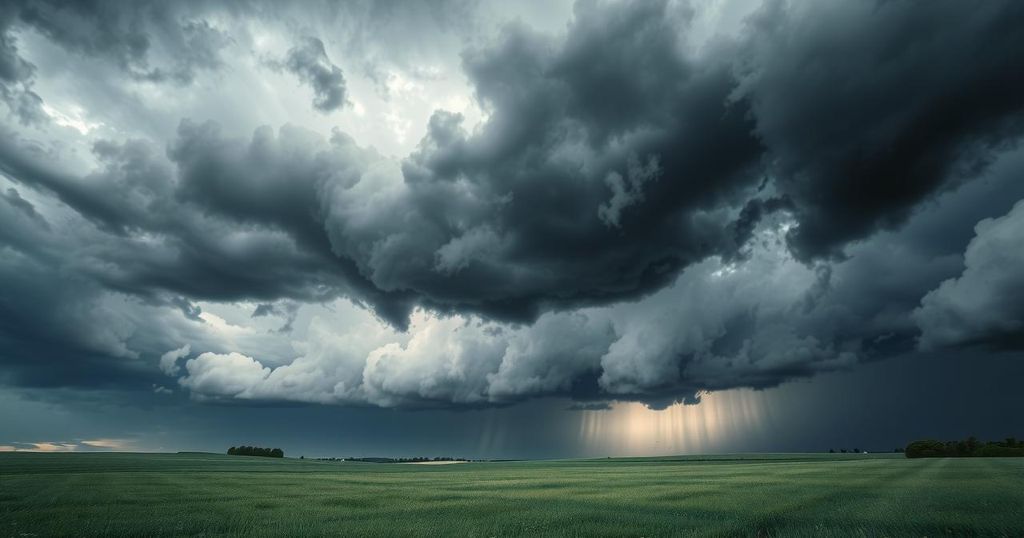South Sudan’s First Vice President Riek Machar was arrested amid rising tensions involving armed clashes between government forces and militias. The UN warns that this development could lead to widespread conflict, with approximately 50,000 people displaced. The SPLM-IO severely criticized the constitutional legality of the arrest and called for calm from political leaders.
The recent arrest of South Sudan’s First Vice President Riek Machar in Juba has instigated serious concerns regarding the potential for escalating conflict in the nation. According to a statement from the chairman of Machar’s SPLM-IO party, the arrest was executed with the involvement of 20 heavily armed vehicles. The SPLM-IO has condemned this action as unconstitutional and criticized the vague charges against the Vice President.
The United Nations Mission in South Sudan (UNMISS) has expressed alarm, indicating that the arrest places the country at a critical juncture, threatening to either devolve into widespread conflict or progress towards peace. Nicholas Haysom, the UNMISS head, has urged all involved parties to practice restraint, emphasizing the importance of leadership amidst such turmoil.
Clashes between forces loyal to President Salva Kiir and those aligned with Machar have reportedly occurred, further complicating the situation. The United Nations has noted that around 50,000 individuals have been displaced in Upper Nile due to the rising tensions, with external nations such as Norway and Germany reacting by temporarily closing their embassies in light of security concerns.
The international community is closely monitoring the developments, fearing a resurgence of civil war amid increasing tensions between government and militia forces allied with Machar’s faction. The continued unrest poses significant challenges for the peace and stability of South Sudan.
In summary, the arrest of Vice President Riek Machar has raised urgent alarms about escalating violence in South Sudan. With substantial displacement reported and ongoing clashes between factions, the situation remains precarious. Both the United Nations and various foreign governments are closely observing the matter, emphasizing the need for restraint to avoid a return to civil war.
Original Source: www.dw.com






